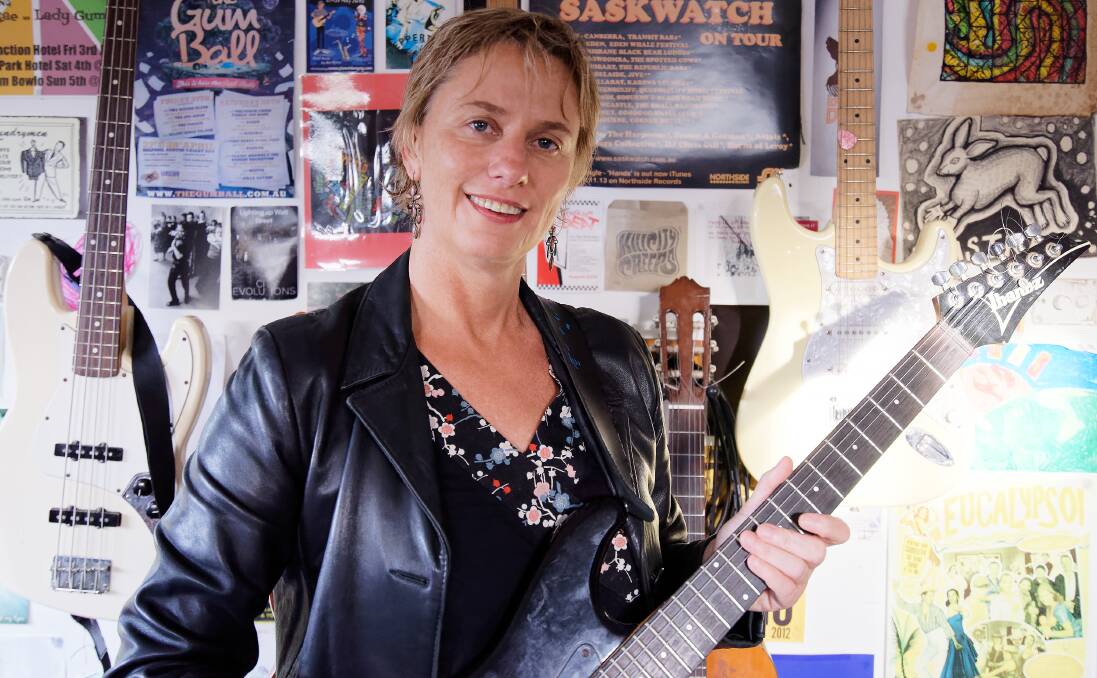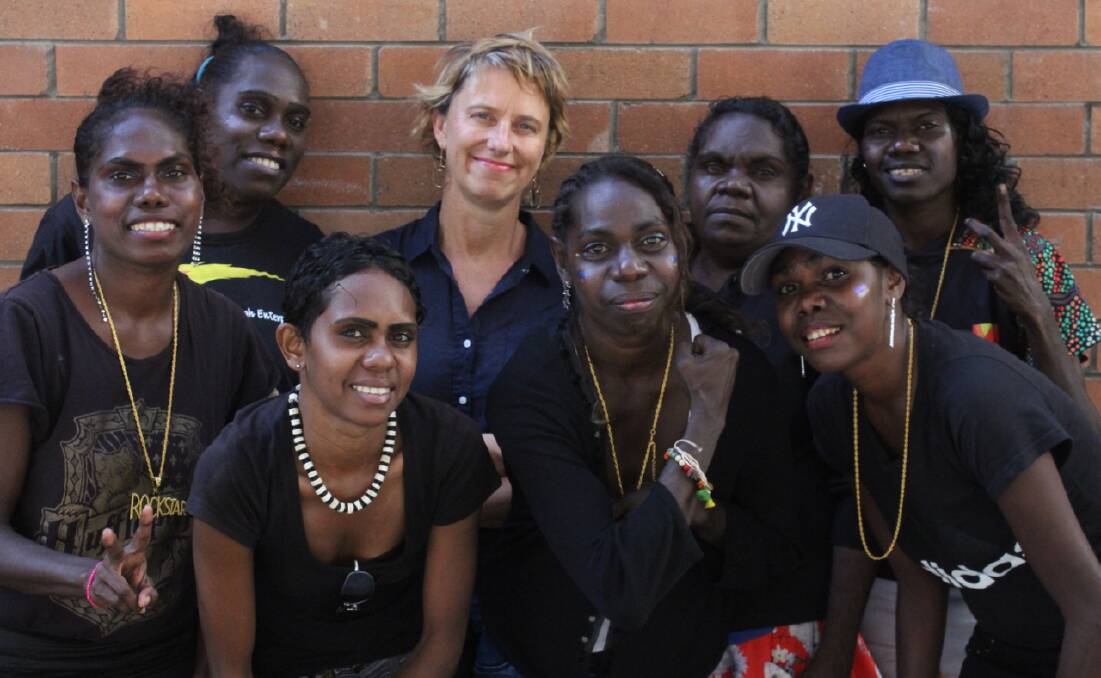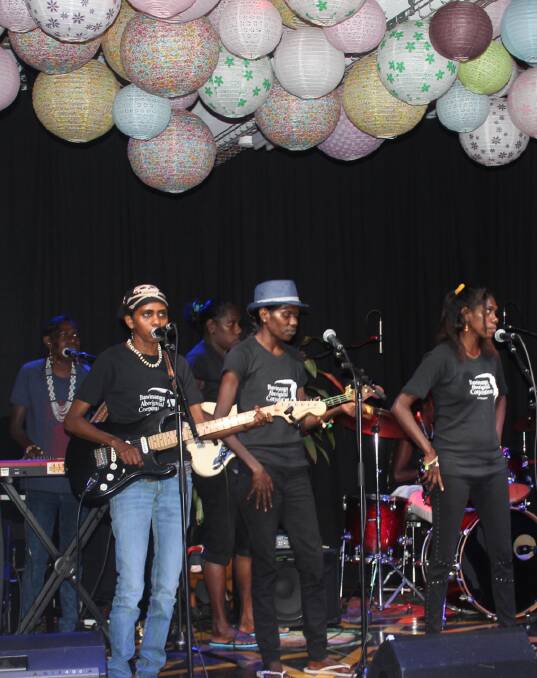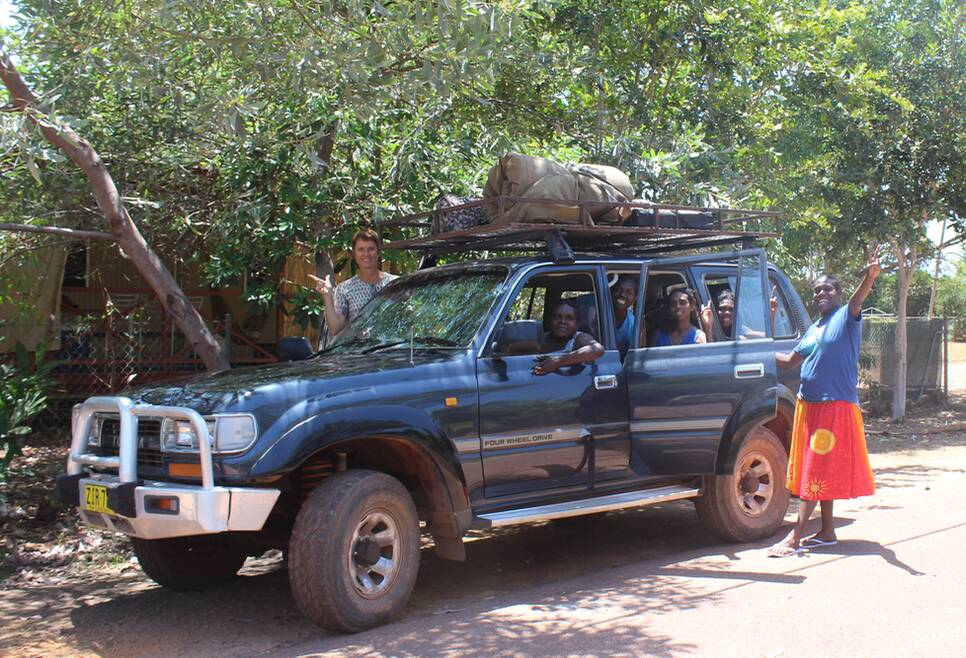
Music has always been part of Jodie Kell’s life.
Subscribe now for unlimited access.
$0/
(min cost $0)
or signup to continue reading
She grew up in a Sydney household where her mum was a musician (her dad was a civil engineer).
Jodie learned to play the piano and trumpet as a child and kept with the trumpet throughout her school years. She found the trumpet handy for getting paid gigs everywhere she’s been. It was particularly helpful when she immersed herself in the music scene in Darwin over 20 years ago.
Her teenage son Clarence plays a key role in talented Newcastle band, Cherry Stain.
Jodie also plays in The Buzzard Mix, a Newcastle soul and ska band.
Reflecting on her life over a coffee recently, she summed it up with a breath of clarity: “Wherever I went, music was part of my story. Meeting people by playing music. That opens up doors of friendships and relationships that are very dear to me.
“Music is a journey, like having kids really. You think are going to be this, then music takes you on a journey.
“I look at young women, and think back to my 20s and how I launched into music as part of my life. I am thankful to my mum and all of my music teachers. But I didn’t know which way it would take me.”

RIPPLE EFFECT BAND
At present, Kell has been touring with the Ripple Effect Band, playing lead guitar.
This extraordinary band features seven Aboriginal women (plus Kell, who is not Aboriginal) who sing and play instruments, creating stirring original music in four different Aboriginal languages.
The music is contemporary, in the shadow of a proud Aboriginal tradition of rock’n’roll. But it’s groundbreaking in the sense they are Aboriginal women adding to the song cycles of their people, with stories of their own people’s history, told in new verse.
Kell is documenting all of the band’s activity, as it is her doctorate project in music with the University of Sydney. The subject is The Role of Women in Music and Dance in Maningrida, a community in the Northern Territory.
The band just played the opening night party at the Darwin Fringe Festival, releasing a four-song EP made in Sydney late last year with the assistance of top music producer Paul Mac.
“My PhD subject is looking at these women, this band, what happens when women play music, a new art form, which is women’s music,” Kell says. “The ethnomusicology. Ethnography is when you focus on a group of people, a really detailed examination of their processes, and so I work with the band and I write about the process of this groundbreaking, innovative musical tradition they are creating.”
The method is participant observation, which accounts for her involvement as a member of the band.
“Being inside the band gives me insights,” she says. “I have to be very careful … I talk to them about what I write about and don’t write about. I have to respect their privacy.”
“I certainly get a lot of insights being in there. While I’m in community [in the Northern Territory], in the field, I write every day, and I record rehearsals, interview women. The whole process has been documented as we go.”

The band had a breakout year in 2017, playing major festivals in the Northern Territory and coming to Sydney to record at the conservatorium with Paul Mac, as well as having their songs played on ABC Triple J’s unearthed program for rising talent.
Kell divides her time between her home at Mayfield, where she has lived since 2009 and her job in Sydney as an audio preservation officer for the The Pacific and Regional Archive for Digital Sources in Endangered Cultures at the Sydney Conservatorium of Music, and three months a year doing research with the women from the Ripple Effect Band and other women in Maningrida, 500 kilometres east of Darwin in Arnhem Land on the coast of the Arafura Sea.
Kell’s role with the band is not about fame and fortune. But it is about passion, a passion for music, for women and music in particular.
“I believe the women, for whatever reason, both in our culture and up there [in the Northern Territory], women were not being given the chance to express themselves musically,” Kell says. “Now, for me, as a female musician, I find that music is soul food. Being able to express through music and sound, it gives you a way of communicating that goes beyond language. A way of communicating and connecting with people on a very deep level.

“I think if, in terms of gender, if women aren’t represented as musicians, I find it really surprising, that’s its ok for that to happen. Women should be able to put their stories forward and express who they are. So I guess I have a bit of thing about women playing music.”
HISTORICAL AWARENESS
It was until Kell became a student at the University of Sydney (graduating in 1991) that she became aware of Australia’s history in relation to Aboriginal people in this country. And it wasn’t until she decided after graduating with a Bachelor of Arts degree to head to northern Australia that there was another side of the country and its people she knew little about.
“I got to Alice Springs and looked around and, whoa, everyone is speaking language,” she says. “I never really realised how strong Aboriginal languages were. They weren’t something from the past.”
She realised if she wanted to become absorbed in a community in the region, she needed to have a useful occupation, like teaching or nursing, so she studied and obtained a teaching diploma from then Charles Darwin University in Darwin.
She and her boyfriend at the time ended up finding work in Borroloola, on the McArthur River, 50 kilometres upstream from the Gulf of Carpentaria. They immersed themselves in the land and culture.
“I always believe from the beginning I was a school teacher, but I was also a student,” Kell says. “When you learn language, you act like a young child as your language forms. In a way, going out there I was a young child being taught by my elders. I’ve always felt my whole experience, I’ve been privileged to learn while sharing my skills.”
Both of her children, Jackson and Clarence, were born in the Northern Territory. The family eventually moved to Maningrida, a melting pot of Aboriginal cultures where 14 languages were spoken.
Kell got a job at the local high school, and was part of a team that developed a music program, which is where she met the girls who are now the women in the band, the Ripple Effect Band.
“In Maningrida, women don’t play music in public,” Kell says. “Traditional music is restricted for gender lines, and in public ceremonies, women dance – they don’t sing or play clapsticks.”
But things changed during Kell’s time in Maningrida. Girls had the opportunity to play music and they jumped on board, showing amazing talent to play rock. The first group, the Maningrida Girls Band (MGB) had a hit song, called Love Song, and played it in public, stirring some local objections.
Yet, it was local male musicians who spoke up in favour of giving the girls a fare go to play in public.
“I was constantly amazed in the school,” Kell says. “They [the girls] would come in and watch, look at the drums, not touch the drums, and then one day, they’d say ‘I want to get on the drums’ and off they would go. They could play the drums. This very active listening and watching.”
The school set up a band room and had a studio built. The band room was frequently full. Kell says she believes it improved school attendance and the commitment to graduating.

RECONNECTING
Not long after she left to raise her family back in NSW, the music program was disbanded at the school. Ten years later, when Maningrida got its first mobile phone tower, those female students, now grown women, reconnected with her, pleading with her to return and play music with them.
Kell was happy to retrace her steps, motivated to help them capture their culture with their own original songs.
“I wanted to push into songwriting,” she says. “I felt as women now, that their songwriting would have a great depth. That’s really what has happened. In their native language.”
The experiences Kell has shared with these women have been nothing short of remarkable.
“For those of us who are musicians, music is the way you express yourself and makes you feel alive. To not have opportunity to play, when you have been so successful … I contributed to starting it. I felt a responsibility to go back, to give them an opportunity to continue, to express themselves.”
The results have been remarkable, bringing joy not only to these Aboriginal women, but an entire nation.
“Their ultimate aim is to play music together throughout their lives, to have that music as their journey,” Kell says of the women in the band. “They said ‘we want to be old women still playing rock’.
“I’m in on that.”

